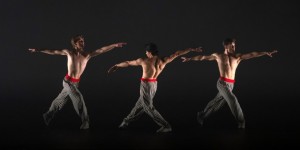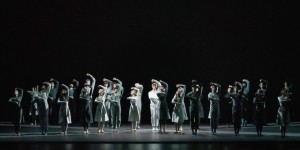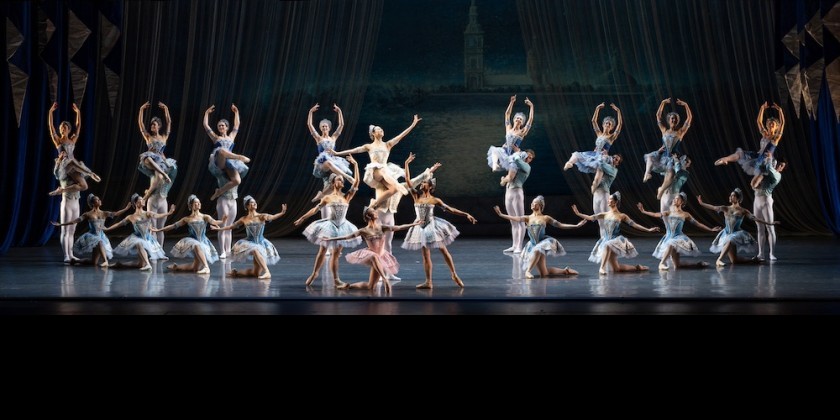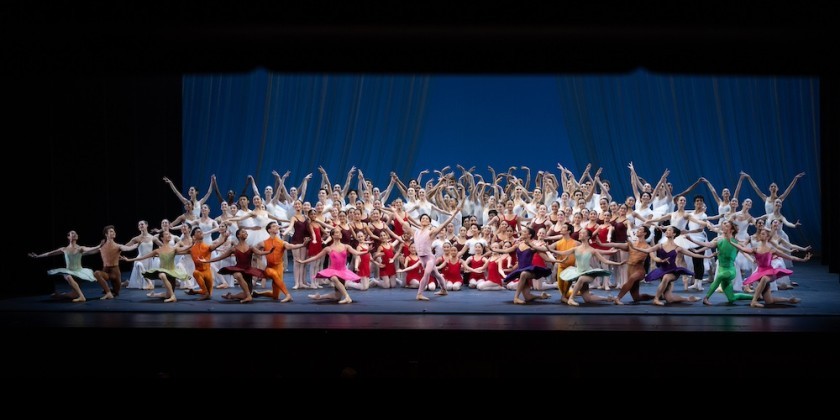IMPRESSIONS: David Hallberg in Madeline Hollander's "52 Final Bows," a Virtual Presentation by The Shed

Dancer: David Hallberg
Director: Madeline Hollander
A virtual presentation at The Shed
Watch it HERE
Saying goodbye is hard to do, unless you’re a ballet dancer. Then, like everything else, “goodbye” becomes an art.
Reminding us of this fact is 52 Final Bows, a hilarious video commissioned by The Shed, in which former American Ballet Theatre principal David Hallberg and his co-conspirator, choreographer Madeline Hollander, offer tongue-in-cheek homage to the sacred ritual of the curtain-call.
Hallberg, who was deprived of his opportunity to give a final bow when the Covid lockdown of 2020 forced the cancellation of his farewell performance in Giselle, is making up for a personal loss. Here he crams a lifetime of bows into under 15 minutes, illustrating the techniques of the pros and how they leave us begging for more. Each bow is a choreographic miniature, craftily spun to elicit yet another surge of admiration for the artist’s grace, wit, and style.

This is also the moment when the audience, released at last from its spell, is encouraged to hoot, holler, and give vent to those powerful emotions that have been building up all evening. While no doubt gratifying to the artist, the curtain-calls additionally give the public a chance to respond with a performance of its own—applauding, stamping, and tossing flowers and confetti. These bows are the signal that unleashes a personal and communal rapture. (Why so many critics deprive themselves of this pleasure, I cannot explain.)
Hallberg is a cunning mime, and in 52 Final Bows he not only illustrates the “in-character” bows associated with a variety of ballets, but also imitates the quirks of some notable choreographers. Here we see Odette’s fluttering descent to one knee, and Odile’s version of the same bow with a heavily lidded glance to the side. Poor Giselle is suddenly distracted, and her eyes roll upward attracted by the flight of passing ghosts. Kitri fans herself coquettishly. Hallberg makes a subtle distinction between the loose head-bobbing with which Twyla Tharp acknowledges applause, and Anne Teresa de Keersmaeker’s quicker, stiffer bobble. He recalls Mark Morris’ predilection for rudely turning his back on the public.

Different companies have characteristic ways of bowing, which may or may not amount to a “national” style as in Antony Tudor’s satirical Gala Performance. At New York City Ballet, Hallberg shows us, the bows are perfunctory; the choreographer is the star, and the dancers are in a hurry to begin the next number on the mixed bill. At the Paris Opéra, the bows are crisp and understated—typically French. For all its sumptuousness the Bolshoi unquestionably has its longueurs, though Hallberg is unable to demonstrate how Russian dancers, thinking to hoodwink an audience, will sometimes prolong their curtain calls following a bad performance.
An artist’s curtain-calls may also reveal his character or state of mind, so in 52 Final Bows, we see the aw-shucks gratitude of the falsely modest, and the arrogant bow with which the supercilious underscore their greatness. Hallberg gives us the Cheerful and the Sulky; and he tailors his bows to fit a variety of circumstances—hemmed in by the audience in a black-box theater and waving goofily to the fans in Tokyo.
He also demonstrates the proper etiquette for retrieving bouquets and presenting a flower to one’s partner. The audience’s appreciation doesn’t end with flowers, of course. Stretching like an outfielder, the danseur noble is sometimes called upon to snatch a flying Teddy bear out of mid-air. Gracefully, of course!

Evidently no ballet dancer ever wants to say farewell, or sincerely intends to leave the stage for good. Think of the Trocks’ Ida Nevasayneva, the un-Dying Swan, who, having finally departed, always signals her willingness to return by dangling one foot from the wings. In ballet, the act of leave-taking, fantastically embellished, is always a dodge. These adieux allude to the vague possibility that someday (heaven forbid!) the theater will darken forever. Tears may be shed, yet until Death itself shows up with a crowbar, the ballet star’s separation from his adoring public remains temporary and purely theoretical.
Unfortunately, in 2021 world events require us to consider the possibility that 52 Final Bows is serious. Did we mention that our civilization is currently in a death spiral? Either we throw off the tyranny that now besets us, or we will lose everything. As 52 Final Bows concludes, its creators hedge their bets. In “A Bow for the Future,” Hallberg leaves us turning in circles—either searching all around for an audience that has disappeared or acknowledging the presence of a crowd much larger than any we have seen before. That future is up to us.













